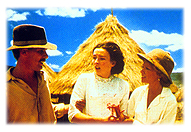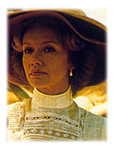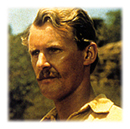The Flame Trees of Thika
|
|
|
|
 |
This is a delightful mini series dramatising the life of settlers in Africa in the period immediately before The Great War. There is no high drama, cunning plot or despicable villains, this mini-series is a very subtle representation of what life must have been like for the disparate settlers who decided to try and make their fortune in this part of the world. For disparate they truly are, socially and geographically, we have the settlers who are making a last gasp to save themselves financially, there is the Northern bank clerk who has moved here for his health, there is the Boer hunter and a couple who have eloped to escape social embarrassment at home. What gives these characters even more flesh is that they are all based on real people. Elspeth Huxley, wrote a book detailing these childhood memories. In fact, the film manages to convey the wonder, beauty and ugliness of an Africa that would have been experienced by just such a young girl. She stands in awe of the Witch doctors, appreciates the beauty of the animals around her and yet has to come to terms with the ruthlessness of the wild (and human) life in the area. The young girl holds together this narrative magnificently.
 |
 |
As I mentioned before, there is no strong storyline as such, it is more a collection of events as was experienced by the real life Elspeth Huxley. It is fascinating to see the rebuilding of a society by settlers who have been transplanted to such exotic and strange surroundings. They still try their best to recreate a mini-British society however awkard it is to do so. We see the inordinate expense and bother taken to get a piano out to a plantation, or the pains taken to get dressed up for dinner, or the amount of effort required to recreate Christmas and New Year celebrations. In effect, we see that these colonists are homesick and pining for many of the things that they have left at home. In order to come to terms with the harshness and alienness of the local environment they really do become more British than the British. It's for incites such as these, rather than intricate plots and clever endings, that you would be well served by watching this mini-series. For a view of daily life in colonial Africa, you would be hard pressed to find a better introduction. It is subtle, delicate and excellent.
Buy this DVD at: 
Armed Forces | Art and Culture | Articles | Biographies | Colonies | Discussion | Glossary | Home | Library | Links | Map Room | Sources and Media | Science and Technology | Search | Student Zone | Timelines | TV & Film | Wargames